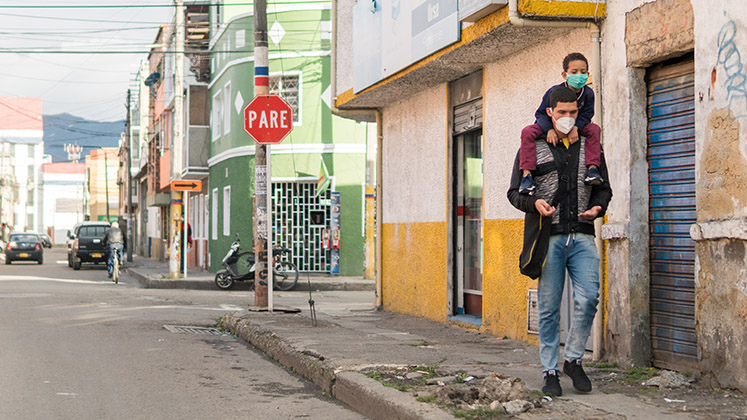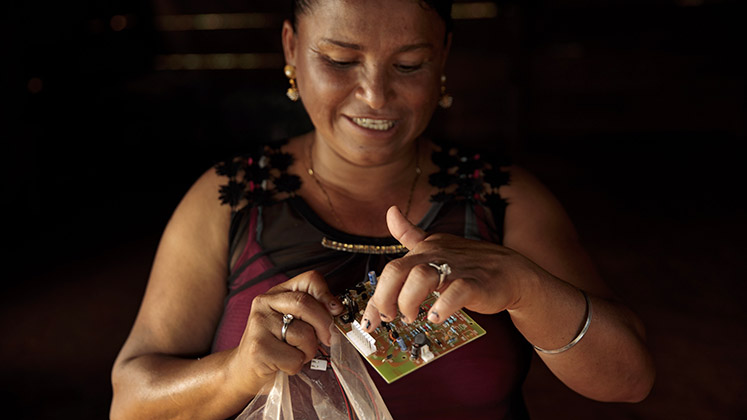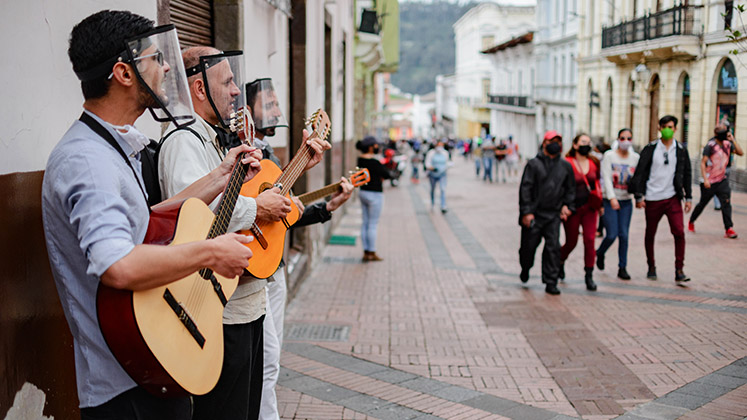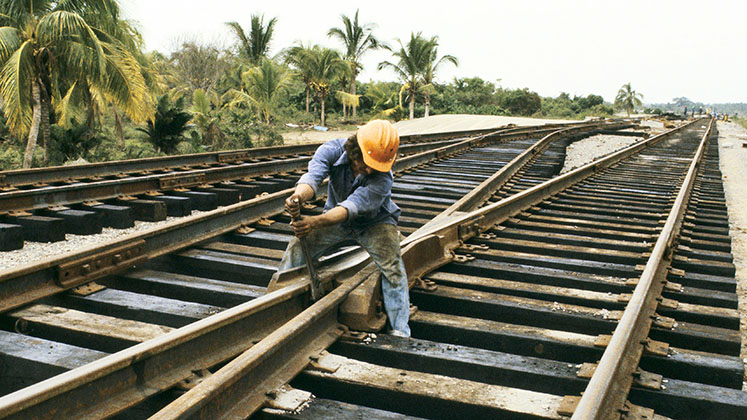Mobility restrictions, lockdowns, and economic slumps have endangered communities during the pandemic in the Global South. But a human security approach can help protect people’s lives by addressing the pandemic‘s multidimensional impact, writes Alexandra Abello-Colak (LSE Latin America and Caribbean Centre).
Not only has disrupted normality, but the pandemic has aggravated situations that can be “human security crises” for some particularly vulnerable groups affected by poverty, inequalities, historical marginalisation and problematic relations with state institutions and illegal armed actors.
These crises can bring serious instability, facilitating and intensifying multiple forms of violence. They can also create further obstacles to the successful tackling of development and security challenges in cities.
So, what do the human security crises brought on by the pandemic look like? And how can we design recovery strategies capable of addressing them?
The impact of COVID-19 on people’s lives
Our recent participatory research was carried out by academics, community researchers, and members of grassroots organisations in Colombia’s second-largest city, Medellin. This research sheds light on how the pandemic has affected some of the most vulnerable people in one of the worst-hit countries in Latin America and the Caribbean.
In 2020, Medellin saw the deterioration of at least 21 indicators of human insecurity since the pandemic started, this research shows. Falls in economic, food, health, personal, community, and political security reveal that the COVID-19 crisis led to localised human security crises in some communities, which have experienced an alarming increase of interconnected and multidimensional threats. Those hazards include immediate risks, not only to their physical and mental health, but also to their livelihoods, dignity, fundamental rights, and basic survival. Human security crises were aggravated by a significant reduction in the capacity and credibility of key state institutions charged with protecting people from these threats.
Gangs and criminal organizations regulate daily life, not only in Medellin but in other cities in the Global South. They impose coercive social orders and distort the provision of services in the poorest communities. Many of their residents also depend for their livelihoods on the informal economy and precarious jobs that are threatened by mobility restrictions, lockdowns, and economic slumps. In these complex contexts, the pandemic has resulted in a trap of interlocking and mutually reinforcing insecurities that push people into hopelessness and desperation.
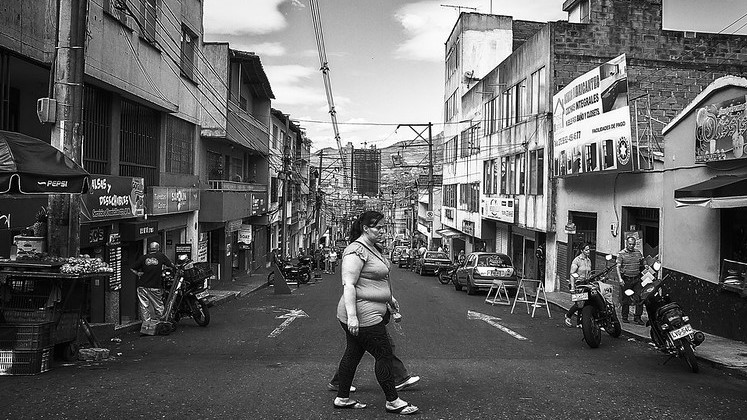
Despite national and local governments implementing initiatives to mitigate their impact, anti-COVID measures themselves resulted in serious losses of income in Medellin. That left several people unable to eat three times a day, afford basic services, or pay for their accommodation. A generalised worsening in living conditions also contributed to a deterioration of residents’ mental health.
Residents reported difficulties managing their emotions, which in turn contributes to even higher levels of gender-based and intrafamily violence and an increase in suicides. The pandemic generated tensions over access to emergency aid sent to communities. There were some violent conflicts between long-term residents and the growing number of vulnerable Venezuelan migrants arriving in Colombia in search of better lives.
With no access to legal credit systems, many took informal loans from relatives and friends, but in the worst cases, they were also forced to turn to loan sharks from criminal groups to get by. Some who were unable to pay their rent had no choice but to move in with relatives, exacerbating overcrowded living conditions that helped the spread of the virus. Others relocated to cheaper but more marginalised areas where criminal groups speculate with real estate. Some even turned to prostitution to survive.
Many survival strategies and other knock-on effects of the pandemic create additional risks in these contexts. Children and young people with little or no access to computers struggle to continue their education online, leading to higher school dropout rates. As a result, they become more vulnerable to coercion and exploitation by criminal groups.
Around 58.000 minors have been left at risk of recruitment by criminal groups since the pandemic started, Medellin’s Ombudsman warned. Criminal groups have increased their use of children – even as young as 7 years old – to sell drugs, collect debts, and serve as lookouts. The pandemic generated imminent risks to the lives of residents as local gangs control illegal credit, coercively intercede in widespread informal debt arrangements, and also in interpersonal conflicts by imposing violent punishments and forced payments to those involved. This situation has created opportunities for criminal groups to expand their influence.
Using a human security approach to address the impact of the COVID-19 crisis
Over the last year and a half, localised human security crises like the one in Medellin have been unfolding with their own particularities in many other cities of the Global South. This has created highly volatile contexts where social unrest, violence, and criminality become more likely to occur and more difficult to handle.
Such is the case for cities like Bogota and Cali in Colombia and Durban in South Africa, all of which saw unprecedented degrees of social unrest in 2021. There may have been different triggers for the four months of unrest and police violence in Colombia since April and the two weeks of rioting and looting in South Africa’s KwaZulu-Natal and Gauteng in July. But there is no doubt that the devastating consequences of the pandemic for the most vulnerable sectors of the population played a key role in exacerbating the scale and intensity of the unrest in both countries. Some 44 protesters were killed and 1,650 injured in Colombia, and more than 300 people were killed and over 2000 arrested in South Africa, according to local watchdogs.
These dramatic situations tie in with the recent increase in homicides, robberies, and assaults brought by the lifting of COVID-19 restrictions in various cities. There is an urgent need for proportional responses that deal with the multidimensional consequences of the pandemic to prevent the intensification of urban violence, exacerbated insecurity, and the strengthening of criminal groups.
These complex COVID-driven contexts of insecurity in the Global South demand integral recovery strategies. These strategies must target social and economic consequences in terms of jobs and business losses while also addressing interconnected and COVID-aggravated threats to the well-being and lives of the most vulnerable. That will require synergistic use of the combined capacities of state institutions, civil actors, the private sector, and local communities.
The human security approach hasn´t been more relevant ever. It gained visibility as an alternative to militarised and state-centred approaches after the publication of the Human Development Report by the United Nations Development Program in 1994. It prioritises protection from violence and chronic threats like ‘hunger, disease or repression’, as well as from ‘sudden and hurtful disruptions in patterns of daily life. This helps to identify the many overlapping challenges to survival and dignity that a complex crisis creates, while also forging key actors into frameworks for action that can then create comprehensive, people-centred, and context-specific responses that protect and empower people and communities.
Evidence shows that the human security approach can be used to work with those communities and groups most vulnerable to such challenges. One example is the participatory monitoring of the pandemic’s impact in Medellin’s most vulnerable communities discussed above. We also co-constructed human security agendas with civil society organisations and communities affected by high levels of violence and insecurity in cities like Medellin, Tegucigalpa in Honduras, and the Mexican cities of Apatzingan, Guadalupe, and Tijuana.
These projects show that the human security approach has great potential for improving our understanding of how interconnected threats across various dimensions (economic, personal, community, political, environmental, food, and health) are endangering people’s lives. But most importantly, they help us identify solutions that can protect people’s rights in every specific and different context.
The sooner we recognise that the COVID-19 public health crisis has hastened a series of localised human security crises, the faster we can reach a diagnosis and tackle its various effects. But the implementation of the human security approach needs to allow those particularly affected by the pandemic to shape responses. Integrating a human security perspective into urban recovery strategies to COVID-19 will be key in turning this global crisis into a catalyst for generating integral, humanising, and empowering solutions to contemporary security and development challenges.
Notes:
• The views expressed here are of the authors rather than the Centre or the LSE
• Please read our Comments Policy before commenting


